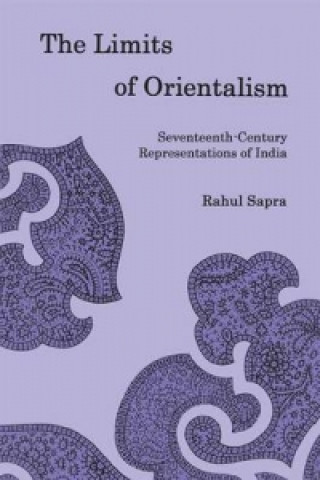
Kód: 05092159
Limits of Orientalism
Autor Rahul Sapra
The Limits of Orientalism: Seventeenth-Century Representations of India challenges the recent postcolonial readings of European, predominantly English, representations of India in the seventeenth century. Following Edward Said's d ... celý popis
- Jazyk:
 Angličtina
Angličtina - Vazba: Pevná
- Počet stran: 224
Nakladatelství: University of Delaware Press, 2011
- Více informací o knize

Mohlo by se vám také líbit
-

Crosscurrents
7060 Kč -

Living with Strangers
851 Kč -

Raw Food Diet for Dogs
403 Kč -
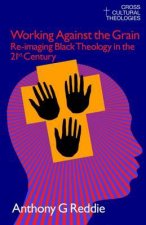
Working Against the Grain
5181 Kč -

Temporal Power Of The Vicar Of Jesus Christ (1880)
897 Kč -

Durchblick im Alltag - Aktuelle Ausgabe - Band 2
570 Kč -

Von Immanuel Kant bis John Rawls
364 Kč
Darujte tuto knihu ještě dnes
- Objednejte knihu a zvolte Zaslat jako dárek.
- Obratem obdržíte darovací poukaz na knihu, který můžete ihned předat obdarovanému.
- Knihu zašleme na adresu obdarovaného, o nic se nestaráte.
Informovat o naskladnění knihy
Zadejte do formuláře e-mailovou adresu a jakmile knihu naskladníme, zašleme vám o tom zprávu. Pohlídáme vše za vás.
Více informací o knize Limits of Orientalism
Nákupem získáte 250 bodů
 Anotace knihy
Anotace knihy
The Limits of Orientalism: Seventeenth-Century Representations of India challenges the recent postcolonial readings of European, predominantly English, representations of India in the seventeenth century. Following Edward Said's discourse of 'Orientalism,' most postcolonial analyses of the seventeenth-century representations of India argue that the natives are represented as barbaric or exotic 'others,' imagining these representations as products of colonial ideology. Such approaches tend to offer a homogeneous idea of the 'native' and usually equate it with the term 'Indian.' Sapra, however, argues that instead of representing all natives as barbaric 'others,' the English drew parallels, especially between themselves and the Mughal aristocracy, associating with them as partners in trade and potential allies in war. While the Muslims are from the outset largely portrayed as highly civilized and cultured, early European writers tended to be more conflicted with Hindus, their first highly negative views undergoing a transformation that brings into question any straightforward Orientalist reading of the texts and anticipates the complexity of later representations of the indigenous peoples of the sub-continent. Sapra's theoretical and methodological approach is influenced by such writers as Aijaz Ahmad and Denis Porter, who have highlighted powerful alternatives to Said's discourse of 'Orientalism.' Sapra historicizes European representations of the indigenous to draw attention to the contrasting approaches of the Portuguese, the Dutch and the English in relation to seventeenth-century India, effectively undermining comfortable notions of a homogenous 'West.' Unlike the Portuguese, for whom the idea of a dynasty and the conversion of heathens went hand in hand with the idea of trade, for the Dutch and the English the primary consideration was commercial. In keeping with the commercial approach of the English East India Company, most English travelers, instead of representing the Muslims as barbaric 'others,' highlight the compatibility between the two cultures and consistently praise the Mughal empire for its religious tolerance. In the representations of the Hindus, Sapra demonstrates that most writers, even while denigrating the Hindu religion, appreciate the civilized society of the Hindus. Moreover, in the representations of sati or widow-burning, a distinction needs to be made between the patriarchal and the Orientalist points of views, which are at variance with each other. The tension between the patriarchal and the Orientalist positions challenges Gayatri Chakravorty Spivak's analysis of sati in 'Can the Subaltern Speak?' which has become the standard model for most postcolonial appraisals of European representations of sati. The book highlights the lacuna in postcolonial readings by providing access to selections of commonly unavailable early-modern writings by Thomas Roe, Edward Terry, Henry Lord, Thomas Coryate, Alexander Hamilton and other the records of the East India Company, which makes the book vital for students of theory, European and South-Asian history, and Renaissance literatures.
 Parametry knihy
Parametry knihy
Zařazení knihy Knihy v angličtině Literature & literary studies Literature: history & criticism Literary studies: general
2498 Kč
- Plný název: Limits of Orientalism
- Podnázev: Seventeenth-Century Representations of India
- Autor: Rahul Sapra
- Jazyk:
 Angličtina
Angličtina - Vazba: Pevná
- Počet stran: 224
- EAN: 9781611490145
- ISBN: 1611490146
- ID: 05092159
- Nakladatelství: University of Delaware Press
- Hmotnost: 458 g
- Rozměry: 239 × 162 × 20 mm
- Datum vydání: 16. April 2011
Oblíbené z jiného soudku
-

How to Read a Book
441 Kč -

Hamlet: The Oxford Shakespeare
236 Kč -
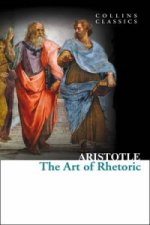
Art of Rhetoric
90 Kč -
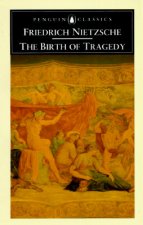
Birth of Tragedy
248 Kč -

Selected Essays
276 Kč -

Complete Short Stories of Ambrose Bierce
493 Kč -

Serpent Power
519 Kč -

Moby-Dick
465 Kč -

Annotated Alice
306 Kč -

Nordic Noir
410 Kč -

Marquis de Sade: A Very Short Introduction
275 Kč -

Children's Fantasy Literature
670 Kč -

Mysteries of Udolpho
286 Kč -

Joseph Andrews and Shamela
226 Kč -
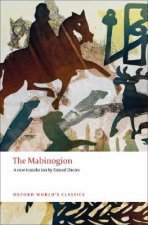
Mabinogion
276 Kč -

The Picture of Dorian Gray
182 Kč -
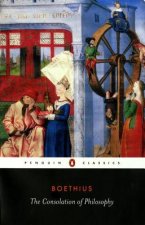
Consolation of Philosophy
276 Kč -
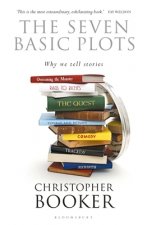
Seven Basic Plots
545 Kč -

Gulliver's Travels
170 Kč -

Life of Samuel Johnson
623 Kč -

Powers of Horror
976 Kč -

Sejong Korean Student Book 2A - English Edition, m. 1 Audio
733 Kč -

Road to Hel
1460 Kč -

Anna Karenina
217 Kč -

Wide Sargasso Sea
223 Kč -
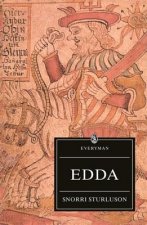
Edda
240 Kč -

Finn and Hengest
249 Kč -
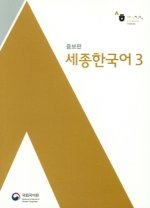
Sejong Korean 3, m. 1 Audio
681 Kč -
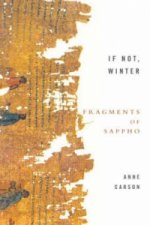
If Not, Winter: Fragments Of Sappho
464 Kč -

Africa's Tarnished Name
139 Kč -

Complete Poetry
219 Kč -

Captain is Out to Lunch
338 Kč -

Devils
268 Kč -

Two Treatises of Government
254 Kč -

Count of Monte Cristo
276 Kč -

Moveable Feast
254 Kč -

Moveable Feast
276 Kč -
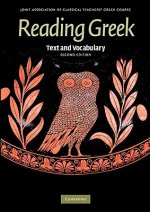
Reading Greek
946 Kč -

Dream Story
278 Kč -
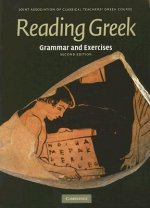
Reading Greek
1072 Kč -

Analysis of Donna Haraway's A Cyborg Manifesto
233 Kč -
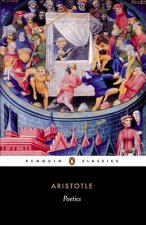
Poetics
276 Kč -

Selected Journals of Lm Montgomery Volume III 1921-1929
514 Kč -

Leaves of Grass
442 Kč -
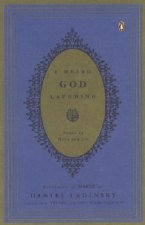
I Heard God Laughing
382 Kč -

Tragedy of King Richard III: The Oxford Shakespeare
234 Kč -

Sejong Korean Student Book 1B - Korean Version, m. 1 Audio
733 Kč -

Wild Ass's Skin
316 Kč -

Cambridge Greek Lexicon 2 Volume Hardback Set
2411 Kč
Osobní odběr Praha, Brno a 12903 dalších
Copyright ©2008-24 nejlevnejsi-knihy.cz Všechna práva vyhrazenaSoukromíCookies



 Vrácení do měsíce
Vrácení do měsíce 571 999 099 (8-15.30h)
571 999 099 (8-15.30h)